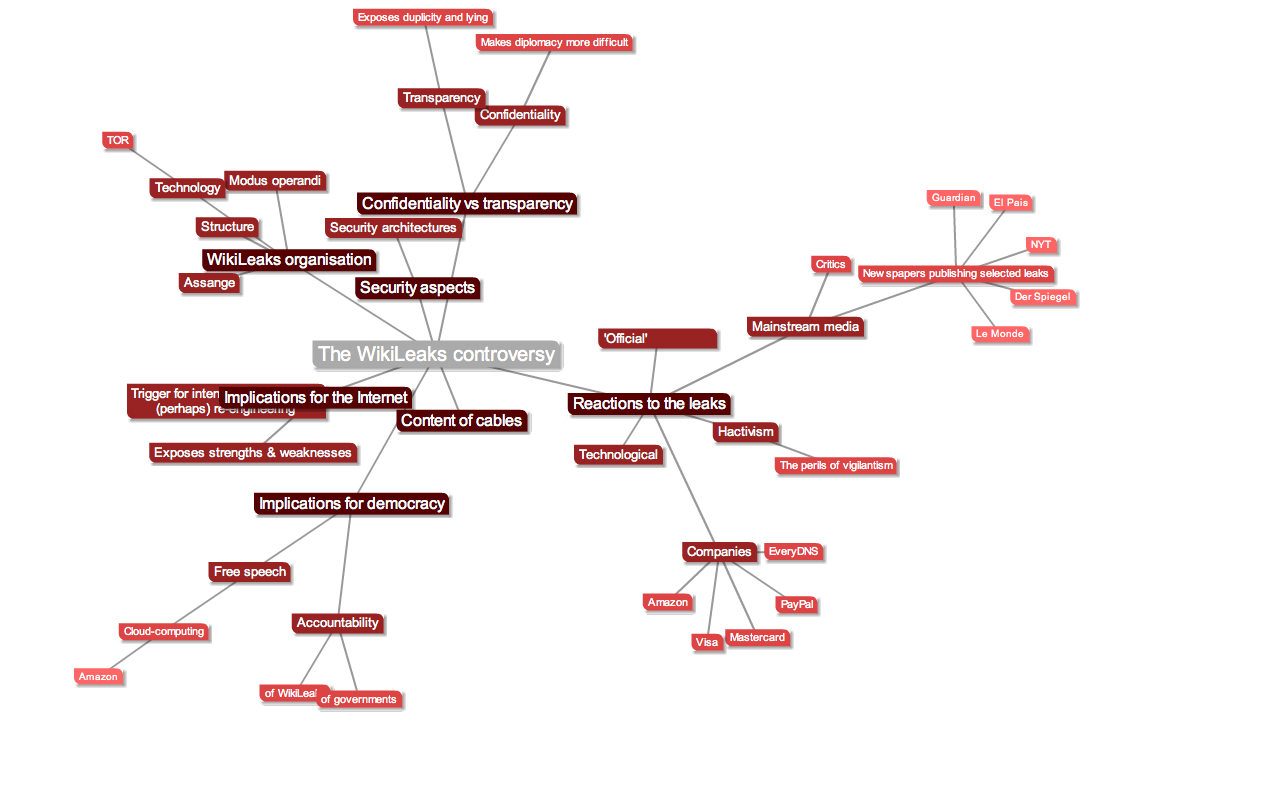Dan Gillmor’s not impressed by the FCC’s pusillanimity. Neither am I.
The neutering of the Internet is now the unofficial policy of the Federal Communications Commission. Contrary to the happy talk from FCC Chairman Julius Genachowski at a rule-making announcement today in Washington, the move is well underway to turn the Internet into a regulated playground for corporate giants.
Dan writes that:
Tuesday’s FCC vote on rules purportedly designed to ensure open and free networks was a 3-2 partisan charade, with Genachowski and the other two Democratic commissioners in favor and the two Republicans against. It did nothing of the sort. The short-term result will be confusion and jockeying for position. Genachowski’s claim that the rules bring “a level of certainty” to the landscape was laughable unless he was talking about lobbyists and lawyers; their futures are certainly looking prosperous. The longer-range result will be to solidify the power of the incumbent powerhouses — especially telecommunications providers and the entertainment industry — to take much more control over what we do online.
As I understand it (from the Wired report), the Commission has approved ‘compromise’ net neutrality rules that would forbid the nation’s largest cable and DSL internet service providers from blocking or slowing online services, while leaving wireless companies with much more latitude.
In other words, the Commission is imposing neutrality on the past (the old world of wired, cable connections) while leaving the wireless future open for all kinds of anti-competitive behaviour by corporations.
Net Neutrality is a concept like ‘transparency’ — something that most people are vaguely in favour of without realising what it really means. One consequence of this is that they are not motivated to defend it when it’s threatened: it’s hard to fight for something that you only vaguely understand. And yet, in principle, it’s not that complicated. Dan Gillmor articulates net neutrality as “the notion that end users (you and me) should decide what content and services we want without interference from the ISPs”. In other words, they provide the pipes (for which they get paid) and leave us free to choose what we want to pull down through them.
Neutrality is important because it’s the reason why the Internet has been such an enabler of innovation up to now. If you have a good idea and it can be realised with data-packets, then the Net will do it for you, no questions asked. But for that to work, all packets have to be treated as equals, unless there’s a good technical reason not to do so. What mustn’t happen is that some packets get preferential treatment simply because the outfit that creates them pays the provider of the pipes an extra fee because then the barrier to entry suddenly becomes a lot higher and disruptive innovation gets choked off. Which of course is exactly what the big multimedia companies and Telcos want to happen.
Given that in the future people will increasingly get their Internet connections wirelessly rather than through land-based connections, relaxing the rules for neutrality in the wireless arena is really worrying — as Tim Wu explained in this terrific interview that I blogged a few weeks ago.
Tim’s new book — The Master Switch: The Rise and Fall of Information Empires — provides the sombre context for all this. In it, he looks back at the history of information industries and concludes that they all go through a cycle (what he calls “The Cycle”) in which they start open and wind up closed. “History shows”, he writes,
— provides the sombre context for all this. In it, he looks back at the history of information industries and concludes that they all go through a cycle (what he calls “The Cycle”) in which they start open and wind up closed. “History shows”, he writes,
a typical progression of information technologies: from somebody’s hobby to somebody’s industry; from jury-rigged contraption to slick production marvel; from a freely-accessible channel to one strictly controlled by a single corporation or cartel — from open to closed system.
Wu argues that this historical cycle is not just an academic concern. For if the Cycle is
not merely a pattern but an inevitability, the fact that the Internet, more than any technological wonder before it, has truly become the fabric of our lives means we are sooner or later in for a very jarring turn of history’s wheel. Though it’s a cliche to say so, we do have have an information-based economy and society. Our past is one of far less reliance on information than we experience today, and that lesser reliance was served by several information industries at once. Our future, however, is almost certain to be an intensification of our present reality: greater and greater information dependence in every matter of life and work, and all that needed information increasingly traveling a single network we call the Internet. If the Internet, whose present openness has become a way of life, should prove as much subject to the Cycle as every other information network before it, the practical consequences will be staggering. And already there are signs that the good old days of a completely open network are ending.
Spot on. Today’s FCC ruling represents a significant step down that road.

